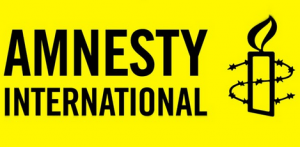Amnesty International urges Ghana to ratify Protocol
 Mr. Lawrence Amesu, the Director of Amnesty International (AI) Ghana, has called on Parliament to ratify the 2nd Optional Protocol to the International Covenant on Civil and Political Rights (ICCPR), as the next step towards abolishing the Death Penalty in Ghana.
Mr. Lawrence Amesu, the Director of Amnesty International (AI) Ghana, has called on Parliament to ratify the 2nd Optional Protocol to the International Covenant on Civil and Political Rights (ICCPR), as the next step towards abolishing the Death Penalty in Ghana.
He explained that although Ghana had shown commitment to the abolition of the Death Penalty, it continued to abstain from voting on it when it was called for voting at the United Nations.
Mr. Amesu said Ghana’s abstinence from voting at the UN on the issue could partly be because the country had not yet ratified the 2nd ICCPR, which would facilitate the abolition of the death penalty and called on government to ratify it.
Speaking at a forum on the next steps to the abolition of the death penalty, after the stall of the Constitutional Review Process, Mr. Amesu recounted some actions of government, which showed its commitment to abolishing the death penalty.
He stated that Ghana is in the category of countries referred to as abolitionists in practice or de facto abolitionists, having carried out no executions over the past 22 years, although nine death sentences were imposed in 2014.
President John Dramani Mahama, on Ghana’s 54th Republic Day Anniversary, on July 1st, 2014, commuted 21 death sentences to life imprisonment, leading to a reduction in the number of people on death row in Ghana to 137 as at December 2014.
Exercising his prerogative of mercy, the President, on 1st July, 2015, again commuted the death sentences of 14 prisoners on death row to life imprisonment, and gave a definite term of 20 years to one prisoner on life sentence, showing his commitment to abolition of the death penalty.
Mr. Amesu commended the French Embassy for its continued support for Amnesty International and the Death Penalty Coalition since they started the discussions on the fight for abolition of death penalty in Ghana, saying the platform also helped to share information among coalition members to better equip them with knowledge and skills for their respective advocacy campaigns.
Mrs Jane Gasu Aheto, the Director, Legal and Consular Department of the Ministry of Foreign Affairs and Regional Integration, stated that, the final decision to abolish the death penalty lay with the people of Ghana, hence the importance of such fora to educate them on its importance.
She pledged the ministry’s commitment to support the campaign and to engage stakeholders where necessary at the national, regional and international levels on the issue. She also stated that the Ministry would continue to collaborate with Amnesty International on this and other important matters.
Mrs. Adelaide Anno-Kumi, the Chief Director, Ministry of the Interior, on her part, emphasised the need for a complete reform of Ghana’s sentencing regime.
She said in light of the congestion at the various prisons across the country, the ministry had held a meeting with stakeholders in the sector to discuss the need for a non-custodial sentencing regime and had received approval from majority of the stakeholders present.
The Ministry had thus forwarded a communiqué to the Attorney General for a Bill to be drafted to reform the sentencing regime in Ghana.
Source: GNA
